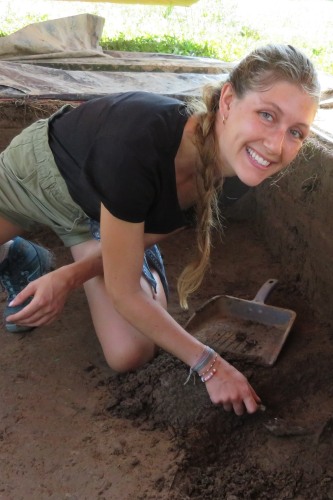
Alyssa Bolster
Biography
Alyssa Bolster is a bioarchaeologist studying the effects of imperialism on diet, health, nutrition, and foodways in the preHispanic Andes. Namely, she uses human skeletal remains from archaeological sites to macroscopically interrogate health in the past, and also performs analyses using archaeological chemistry (stable isotope analysis) to reconstruct individual and community snapshots of quotidian diet. Alyssa mainly works at sites representing communities living on the periphery of the Wari Empire during the Andean Middle Horizon (600-1100 CE), the first major imperial power in the Americas (preceding the Inka). By examining the cultivation, trade, and consumption of socially salient foods (such as maize (corn), chicha (maize beer), and marine and terrestrial protein), as well as the movement of individuals across ancient landscapes, she engages with anthropological and interdisciplinary notions of empire and its impact on intimate acts of our everyday life. Alyssa has also worked in a variety of other historical and prehistoric contexts, including excavating burials at the capital of the Late Classic Maya kingdom of Sak Tz'i', analyzing commingled and cremated remains from Bronze Age Arabia, and aiding in U.S. Department of Defense (DPAA) forensic investigations at B-17 crash sites in France.
Find Alyssa's most recent publication here:
Bolster, Alyssa L., Hannah J. JeanLouis, Lesley A. Gregoricka, and Jaime M. Ullinger
(2023) Estimating adult age categories in commingled skeletons with Transition Analysis 3. American Journal of Biological Anthropology.